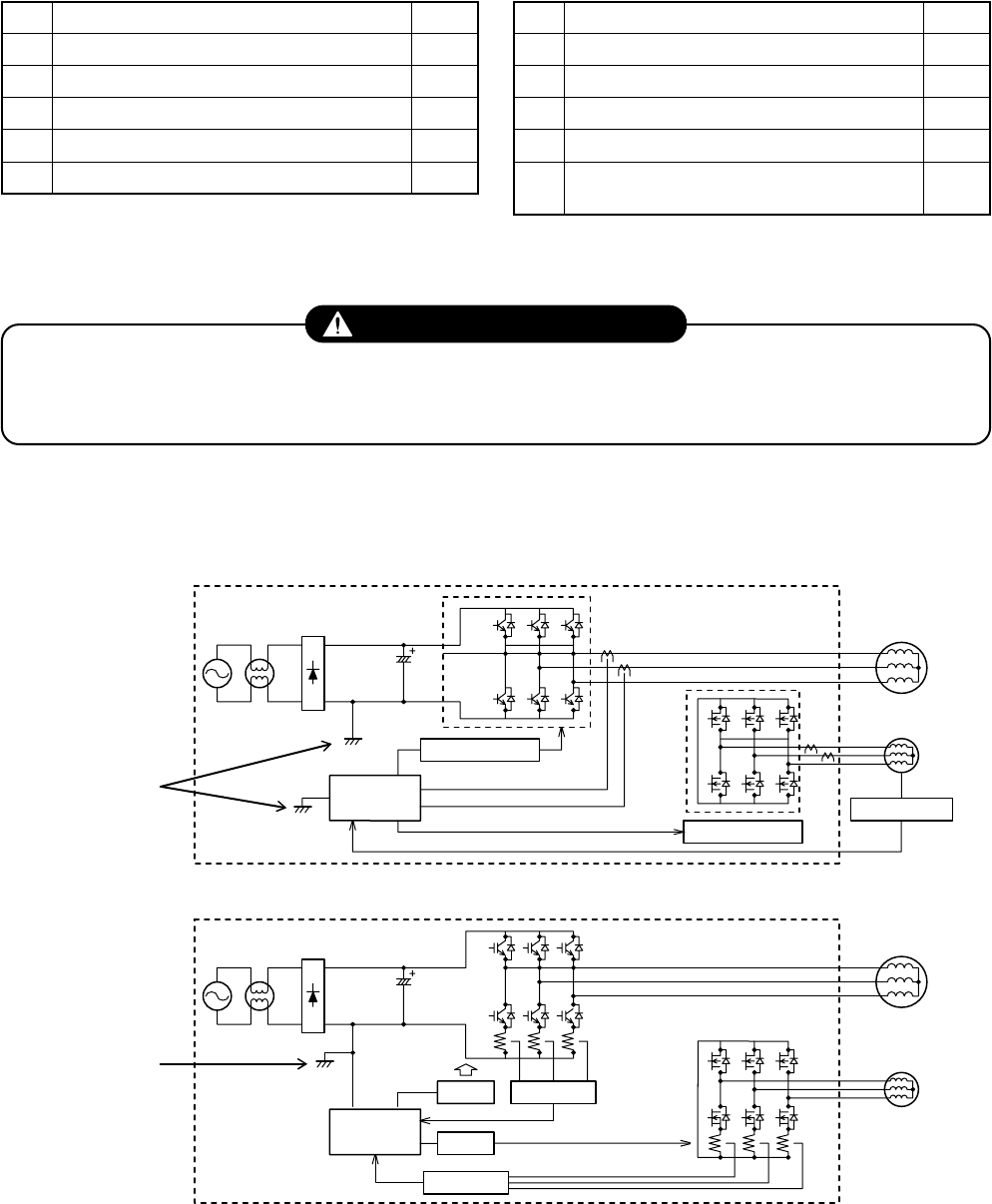
– 60 –
11. HOW TO DIAGNOSE THE TROUBLE
The pulse motor circuits are mounted to both indoor and outdoor units. Therefore, diagnose troubles according
to the trouble diagnosis procedure as described below. (Refer to the check points in servicing written on the
wiring diagrams attached to the indoor/outdoor units.)
Table 11-1
K Precautions when handling the new inverter (3DV Inverter)
CAUTION: HIGH VOLTAGEN
The high voltage circuit is incorporated.
Be careful to do the check service, as the electric shock may be caused in case of touching parts on the
P.C. board by hand.
The new inverter (3DV inverter) will be incorporated starting with this unit.
(3DV: 3-shunt Discrete Vector control)
K The control circuitry has an uninsulated construction.
Fig. 11-1
No.
1
2
3
4
5
Troubleshooting Procedure
First Confirmation
Primary Judgment
Judgment by Flashing LED of Indoor Unit
Self-Diagnosis by Remote Controller
Judgment of Trouble by Every Symptom
Page
62
63
63
64
67
No.
6
7
8
9
10
Troubleshooting Procedure
How to Check Simply the Main Parts
Troubleshooting
How to Diagnose Trouble in Outdoor Unit
How to Check Simply the Main Parts
How to Simply Judge Whether Outdoor
Fan Motor is Good or Bad
Page
72
73
75
76
81
IGBT × 6
FET × 6
MCU
Compressor
Fan motor
GAVP-E, EAVP-E series (uninsulated type)
Shared potential
Driver
Driver
Amplifier
Amplifier
G-Tr
FET
(6IN1)
MCU
Compressor
Fan motor
JAVP-E series (insulated type)
Shared potential
Photocoupler
Photocoupler
Hall device


















